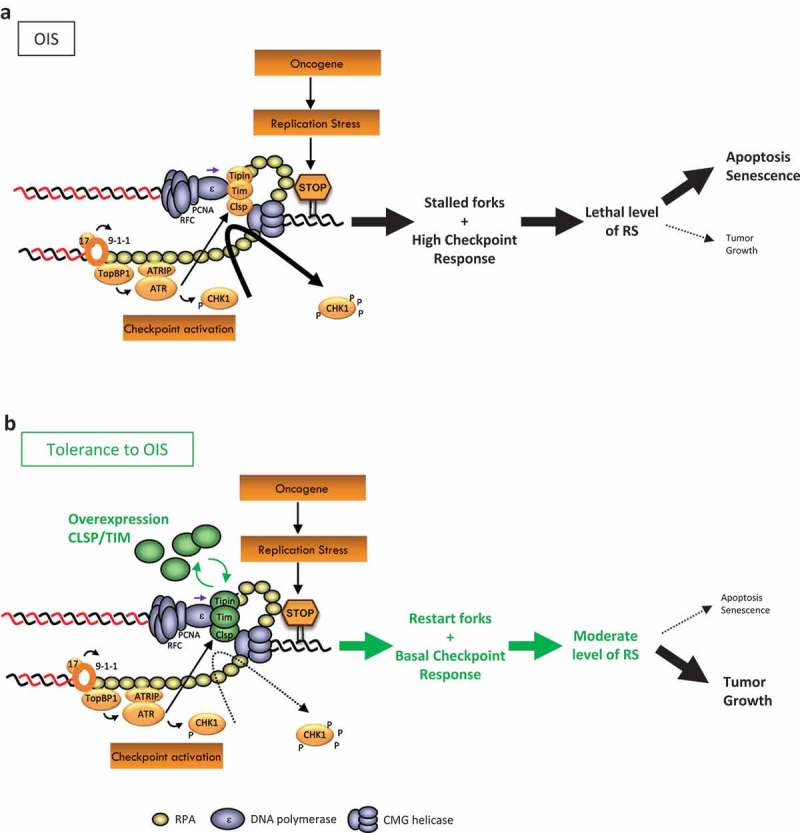Figure 1.

Overexpression of CLASPIN and TIMELESS confers a proliferative advantage by protecting replication forks from chronic replication stress in cancer cells.
(a) Oncogene-induced replication stress (RS) increases fork stalling and checkpoint activation in cancer cells. Sensing of stalled forks involves RPA-coated ssDNA and ATR activation by TOPBP1, RAD17 and the 9-1-1 complex. The ATR-dependent phosporylation of CLASPIN recruits and activates CHK1 at the fork. Cancer cells growing with a high level of RS need to modulate the intensity of checkpoint activation to escape senescence or apoptosis. (b) A strategy used by cancer cells to tolerate high RS is to overexpress fork protection factors such as CLASPIN (CLSP) and TIMELESS (TIM) to help them restart forks efficiently and complete the replication of their genome within the length of the S phase. Thick and thin black arrows indicate high and basal activation, respectively. P: phosphorylation event.
